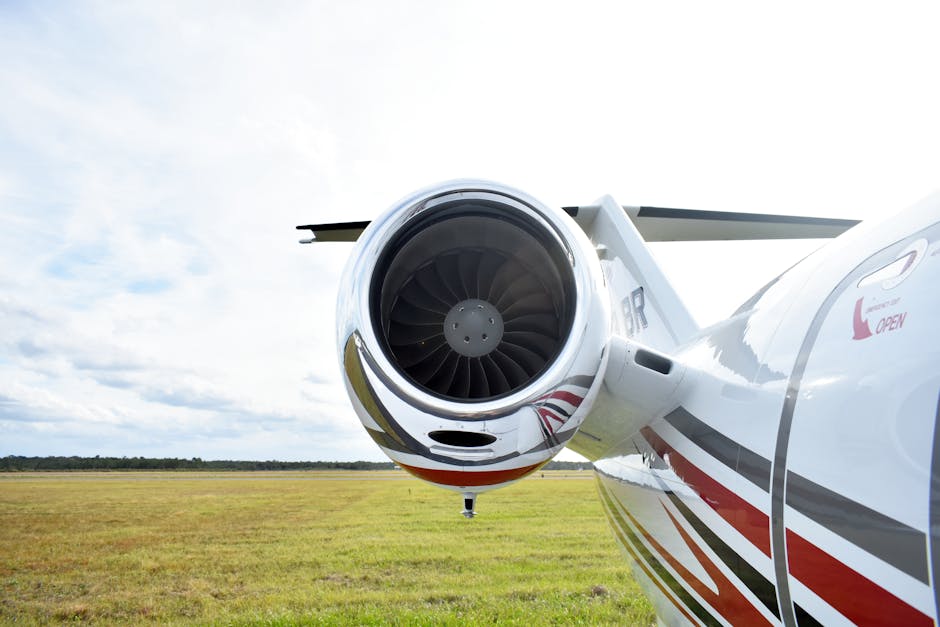The Impact of Technology on Air Travel: From Booking to Boarding
Air travel has transformed dramatically in the past few decades, and much of that is thanks to technology. From how we book a flight to the moment we step onto a plane, the process has been streamlined and personalized in ways we might not have thought possible years ago.
A Few Clicks Away

Gone are the days of calling a travel agent or waiting in long queues to book tickets. Today, platforms like Kayak and Skyscanner allow passengers to compare prices, routes, and airlines with just a few clicks. Algorithms power these platforms, pulling real-time data from countless sources to ensure users get competitive pricing and multiple options tailored to their preferences.
Mobile apps have made this even more convenient. Airlines such as Delta and Emirates offer applications that provide not only ticket booking but also features like seat selection, meal preferences, and even baggage check-in. For instance, Delta’s app integrates with Apple Wallet to store boarding passes, while Emirates allows passengers to use biometrics for faster airport processes.
Personalization is another game-changer. Platforms use machine learning to analyze travel history and preferences, suggesting flights that align with individual needs. A regular traveler to Paris may notice deals popping up for Charles de Gaulle Airport or discounts on hotels nearby. It’s almost as if these tools know us better than we know ourselves!
Speed Meets Simplicity
If you’ve ever dreaded the chaos of airport check-ins, technology has likely softened that blow. Online check-ins have become standard practice for most airlines, letting passengers avoid counters altogether. This feature isn’t just about convenience; it’s about efficiency. Checking in online not only saves time but also allows passengers to select their preferred seats well in advance.
Self-service kiosks have further streamlined this step for those who prefer doing things on-site. These machines can issue boarding passes and baggage tags in under a minute. Airports like Singapore’s Changi Airport have taken it a step further by introducing fully automated systems where passengers can self-check luggage without any human assistance.
For an even smoother experience, some airlines now offer biometric check-ins. JetBlue partnered with U.S. Customs and Border Protection to introduce facial recognition technology for boarding certain international flights. Instead of fumbling with IDs and tickets, travelers simply step up to a camera for instant verification, a process that reportedly takes less than five seconds.
Security Made Smarter
Security checks remain one of the most critical parts of air travel but are often viewed as inconvenient or time-consuming. Innovations here aim not only to enhance safety but also to reduce wait times. Programs like TSA PreCheck in the United States or Global Entry for international travelers use background checks and biometric data to allow pre-approved passengers expedited screening.
On top of that, Artificial Intelligence (AI) is playing a growing role in security operations. AI-powered scanners can detect prohibited items faster than traditional X-ray machines while reducing false alarms. Heathrow Airport recently trialed 3D scanning technology for carry-on luggage that allows security personnel to view items from multiple angles without requiring liquids or electronics to be removed, a potential lifesaver during peak travel times.
Even simple tech upgrades are making a difference. Digital signage linked with live data provides real-time updates on wait times at different checkpoints within airports like Amsterdam Schiphol or Dubai International Airport. Travelers can make informed decisions about when and where to queue, minimizing stress while maximizing efficiency.
The Boarding Process: Goodbye Chaos?
Boarding a flight used to feel like a test of patience, but recent advancements have brought order to this once chaotic process. Mobile boarding passes are now commonplace, with QR codes scanned directly from smartphones at gates. This eliminates the need for paper tickets and reduces errors caused by misplaced documents. Some airlines are experimenting with staggered boarding using AI algorithms designed to minimize bottlenecks in aisles. For example, United Airlines uses data-driven systems that group passengers based on seat location rather than boarding by zones or classes alone. The result? Faster boarding times and fewer delays.
Biometric boarding is another trend gaining momentum. Lufthansa rolled out facial recognition gates at Munich Airport as part of its “Smart Departures” initiative, allowing passengers to walk through security and onto planes without showing passports or tickets repeatedly, a true touchless experience.
However, has the chaos totally disappeared? Well, not quite, but perhaps there is a little less.
Inflight Enhancements: Staying Connected
The impact of technology doesn’t stop once you’re onboard, it follows you into the cabin too. Inflight Wi-Fi has gone from being a luxury feature to an expectation on many flights today. Companies like Gogo and Viasat provide high-speed internet connections even at 30,000 feet, enabling everything from streaming Netflix to conducting business meetings mid-flight. Beyond connectivity, entertainment systems have become smarter as well. Instead of generic movie lists available across all seats, airlines like Emirates now offer personalized content recommendations based on passenger profiles linked with frequent flyer accounts or past preferences.
Catering services are also becoming more responsive thanks to digital tools collecting passenger feedback in real time. Many airlines now allow passengers to pre-order meals using apps before flights, ensuring dietary restrictions or preferences are met without hassle onboard.
The innovations discussed here merely scratch the surface of how technology is reshaping air travel experiences globally. Concepts like AI-powered customer service chatbots are already helping travelers resolve issues quickly without speaking directly with agents, think virtual assistants capable of rebooking canceled flights in seconds or tracking lost luggage automatically.
Whether rushing through an airport terminal or relaxing mid-flight with your favorite playlist streaming seamlessly over Wi-Fi, every touchpoint reflects how far things have come thanks largely due technological advancements driving greater efficiency without compromising comfort along away journey itself!
This article was generated by AI